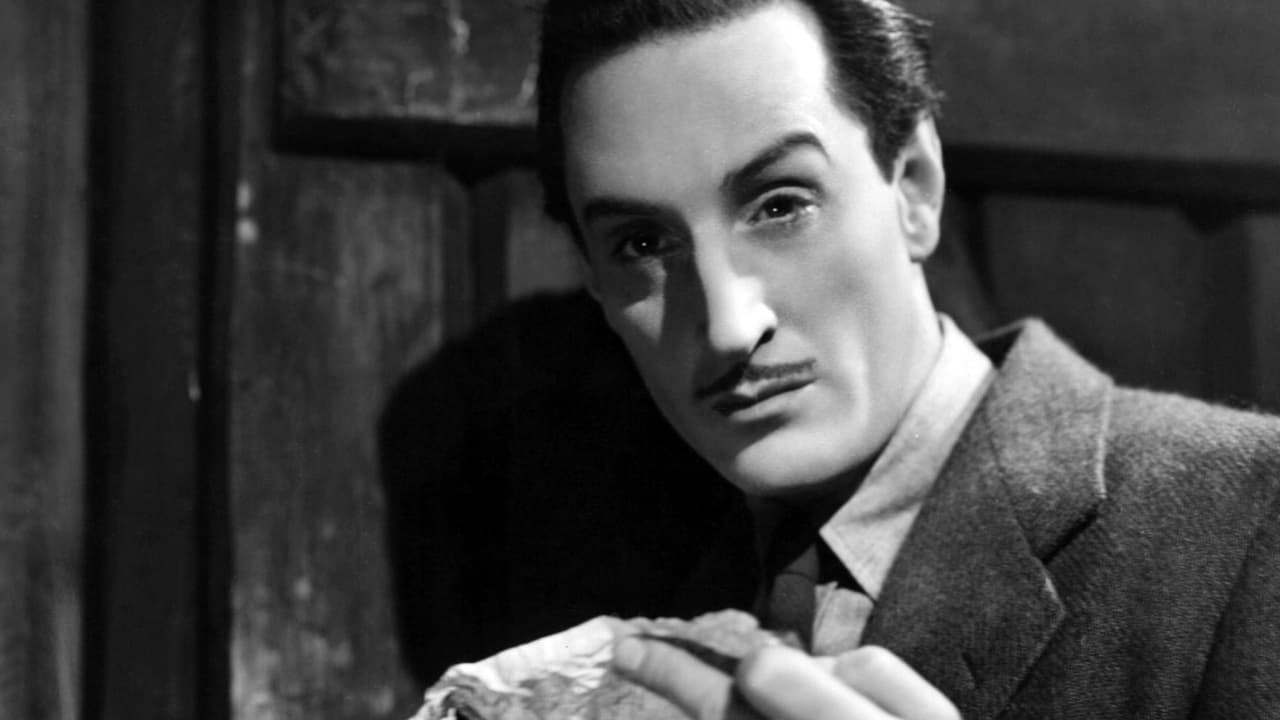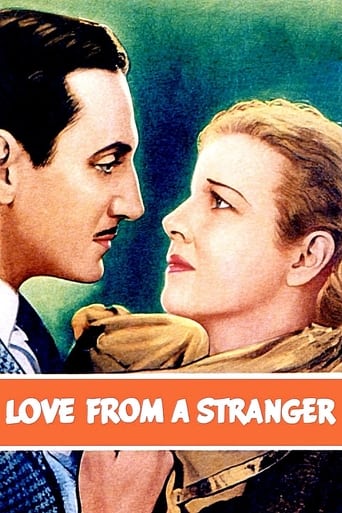

I was so glad I came across this movie for my Christmas treat. I'd never heard of it but was delighted to see it was based on an Agatha Christie story. Ann Harding grabbed my attention immediately, with her lovely eyes and strong, composed features. As the story developed I quickly saw parallels to themes developed in other films by Hitchcock in particular, and wondered if Hitch borrowed some of the ideas from this story. At any rate, while the suspense was slow to build, there were foreshadowings. Once the suspense hit, it built to a mesmerizing climax with breathtaking acting in particular by Basil Rathbone. I was very impressed with Harding's acting, too, conveyed largely by subtle changes of expression. Loved the film and will watch it again.
... View MoreIf you didn't know this was from a story by Agatha Christie, you wouldn't know this was from a story by Agatha Christie.The entire first half of the film is a romantic melodrama of no particular interest, except perhaps for Basil Rathbone's skanky performance as the smiler with a knife. I saw him on Broadway as a comforter in Archibald MacLeish's "J.B.", but it was no use. Every time I see Rathbone trying to be a nice guy I see Mr. Murdstone and the Sheriff of Nottingham.When he sweeps the newly minted Ann Harding off her feet and marries her, the director Rowland V. Lee looses the reins on Rathbone's performance and he begins to blow fuse after fuse, each one worse than the preceding one.Ann Harding, awash in a sea of love, attributes his spells to his time in the trenches in World War I or something. And, like all good wife abusers, he apologizes profusely.At least until the night of the murder arrives. Rathbone has sent the staff away and locked all the doors and windows, preparatory to strangling his wife. She prevents her own death by precipitating his. He drops dead and she rushes screaming to the door of the cottage, which is immediately broken in by three or four friends who were evidently waiting just outside for their cue. They had no other reason for being there.If this is worth sitting through it's because this is -- Basil Rathbone AS YOU'VE NEVER SEEN HIM BEFORE! Man, he overacts. He glares, he spits, he snarls, he chews his tongue, he chews the furniture.I understand he was a pretty good amateur fencer.
... View MoreWhen I heard that 3D would be going mainstream a few years ago, I hoped for a revolution in what we think films are. I believe we are seeing *some* radical rethinking, because with 3D and CGI, we get a less encumbered camera, one whose normal stance is eye height of a human ghost, anchored to the Earth.In other comments, I have noted how this evolution is developing, even in the safest blockbusters. This by itself is a more fundamental shift in our world than nearly everything because it changes how we dream and love. But I was hoping for something more fluid in what realities we see, like *Birdman,* but for film, not stage.The film world had a similar period where new technology challenged us to devise a new narrative vocabulary. For better or worse, our present stories evolved in the great experimental period from, say 1929 to 1941 (Citizen Kane). So rattling around in that period, one sees a much greater variety than we have today. Some of the experimental models stuck around for another ten.Many of these are like this film — a play designed to only engage in the last few moments. This is a bit hard for modern viewers to watch, because there is the barest work to engage. We only have enough (enough for the period) to keep us in our seats. Simple events and a bit of chummy humor.All the engineering goes into the end, where our growing threat is reversed by our smart woman.
... View MoreLove from a Stranger (1937) *** (out of 4) A poor woman (Ann Harding) wins the lottery and soon she's swept off her feet by a nice man (Basil Rathbone) but after they're married she begins to think he has a few secrets including murder. Director Rowland V. Lee does a good job on this story by Agatha Christie and builds some nice atmosphere, which helps matters. Harding is very good in her role but the real key here is Rathbone who, as later in Son of Frankenstein, goes through a nervous breakdown, which is wonderful to watch. Some might call it over the top but I think he does a good job at showing the character losing his mind. Some slow segments hamper the film but the ending certainly makes up for that.
... View More